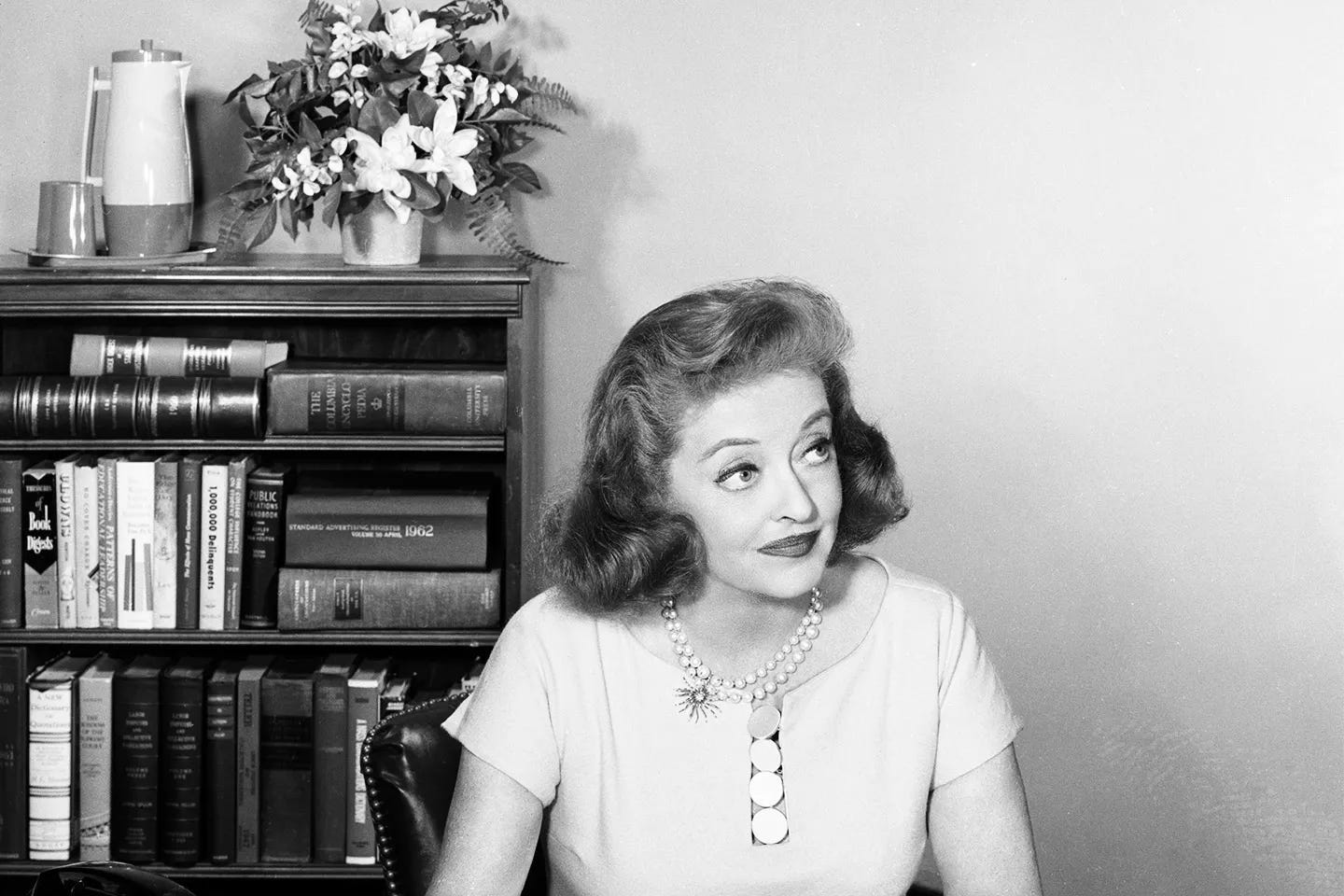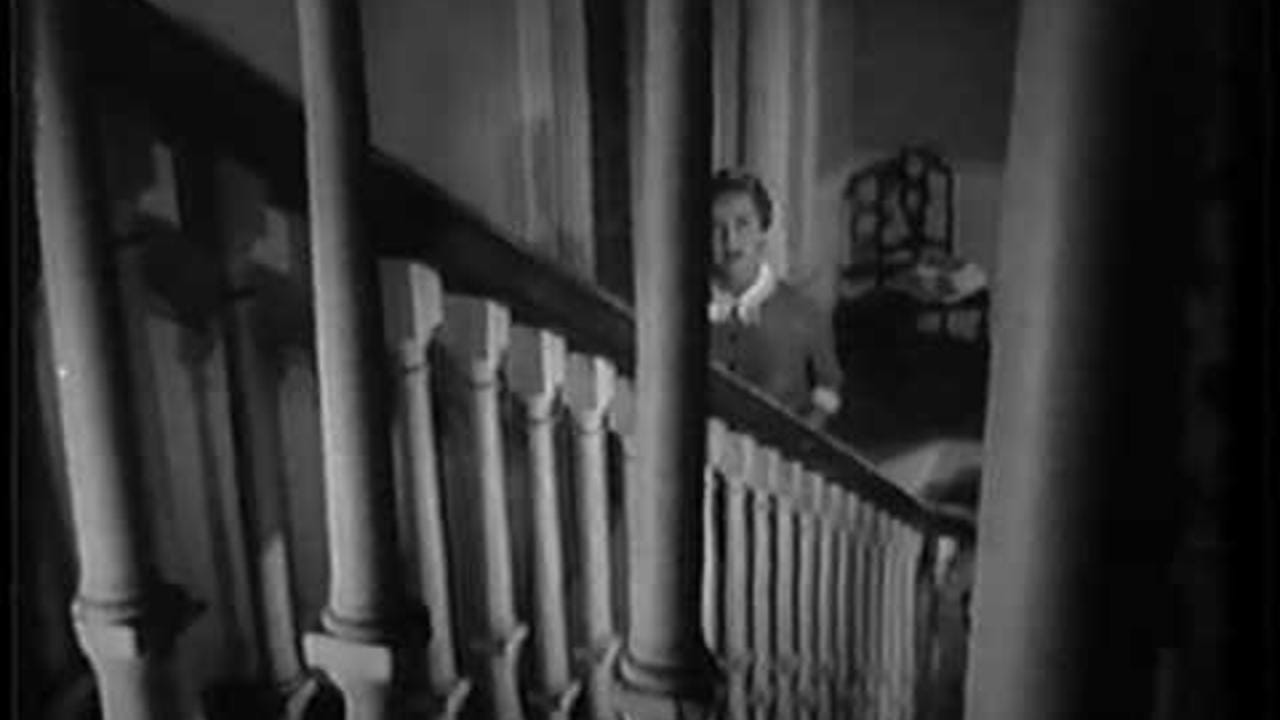Marian Seldes on Bette Davis: Dazzling
"Bette Davis was a dazzling talent and a fascinating woman. She was not easy to get along with, but I do not regret a moment of our times together."
I was in California. [in the mid to late 1950s] My husband was in television—he had a partnership with Richard Boone—and so I went with him. I worked in some theatre, and I got some film and television parts. I was not at all what most people wanted: a tall, dark, serious actress. I was not pretty. I was not glamorous. I was usually villainous or bumbling. Lethal. I remember a Perry Mason where I was a murderess, and I lost my voice, and we had to dub the entire episode later. No one could tell. No one really looked or cared. Everyone was nice and swift. I missed the theatre.
I was told I was up for a part—not a good part—in an episodic. That was how they would talk to you: Listen, there’s an episodic with Bette Davis…And I said, I want it. Get it. I never read it. I accepted it and learned it the day before we began shooting. It was not a good script. Bette knew her part was not good. She desperately needed work. She also desperately needed attention. [The role was on an episode of “Suspicion” and based on a short story by Daphne Du Maurier. It aired in 1958. It is on YouTube.]
Of course she found attention from me. Like you, I wanted to listen to people I loved and admired, and she would sit and smoke and complain, and I would listen to everything she said. She was terrified of being forgotten. She saw her career sliding by. She felt very old. Every part she accepted—and so many of them were poor—was an opportunity to remind people that she was still alive and working and available.
Bette listened to my stories as well. She wanted to know about Katharine Cornell. Alfred Lunt and Lynn Fontanne. Judith Anderson. She claimed she envied their talents and their opportunities. She thought they were effortlessly glamorous, while she was perpetually struggling and grasping for work. Of course there are no effortless careers. Every career is sitting on a foundation of ambition and will and persistence, but Bette’s efforts were so obvious. Did I tell her this? Of course I did not.
She stood up for me. None of the crew ever learned my name. They would call me the tall girl. Would the tall girl move to the left? The tall girl is in the way. And Bette would hold up her hand and criticize the person and introduce me and tell everyone what a good actress I was. She told me it was now my turn to stand up for myself. There would not always be a Bette Davis to stop things and introduce me.
She was hard on me. She told me repeatedly, over the years, that I was a fool to accept the career I had. Bette was willing to lose everything—to be banished entirely from films—when she fought her studio [Warner Bros.] She told me that to accept being second-rate or second-class was a form of suicide, and she didn’t know why I allowed people to keep casting me in supporting or featured roles. She called me once to complain that I was not even mentioned in a review of a play that had just opened. She could not understand why I allowed this. Allow this? I had no power, I told her. Well, as long as you believe that, you will be nothing. Why did I stay in touch with her? I admired her. I was probably star-struck. She needed somebody to tell her story to. That’s what Garson [Kanin] used to say about some people. They needed somebody to hear them out.
Bette came to see me in lots of things. She was always supportive, even though she would tell me the play was bad or some of the actors were not very talented. I rarely agreed with her. She would tell me I had to fight for my career. I did not know how to fight for my career. How does anyone fight for a career? I just vowed to always work hard and well. To give my all. Bette felt this was insufficient.
I am not a Bette Davis. I am not a Geraldine Page or a Julie Harris or a Maureen Stapleton or a Colleen Dewhurst. I am not saying that they fight for their careers as Bette would like them to, but if I had their talents, I might feel I was being underused, but I was always grateful to be employed, used, appreciated. My name does not bring people into the theatre. Only I—on my two legs—bring ME to the theatre. If I had done as Bette suggested—just walk away and refuse to be cast in such small roles—I would not have had anyone calling me to return. I know that. I am not the dazzling talent of Bette Davis. I cannot bend the will or the rules. I am okay with that.
Bette would call me sometimes after one of her films had failed. You know, those scary films. Campy films that only her most ardent fans saw. She would say she had to do it. She had to keep going. She had to let people know she was still around. She told me once, I will not be shoved aside and forgotten.
When I finished The Bright Lights [Seldes’ memoir, from 1978], I sent it to Bette, and she gave me one of the first blurbs, and it was very generous, lovely. On the phone she told me that I had done the right thing, after all: I had lived a theatre life of dignity. I had stayed because I loved it. She told me she could have learned some things from me.
Bette Davis was a dazzling talent and a fascinating woman. She was not easy to get along with, but I do not regret a moment of our times together.




